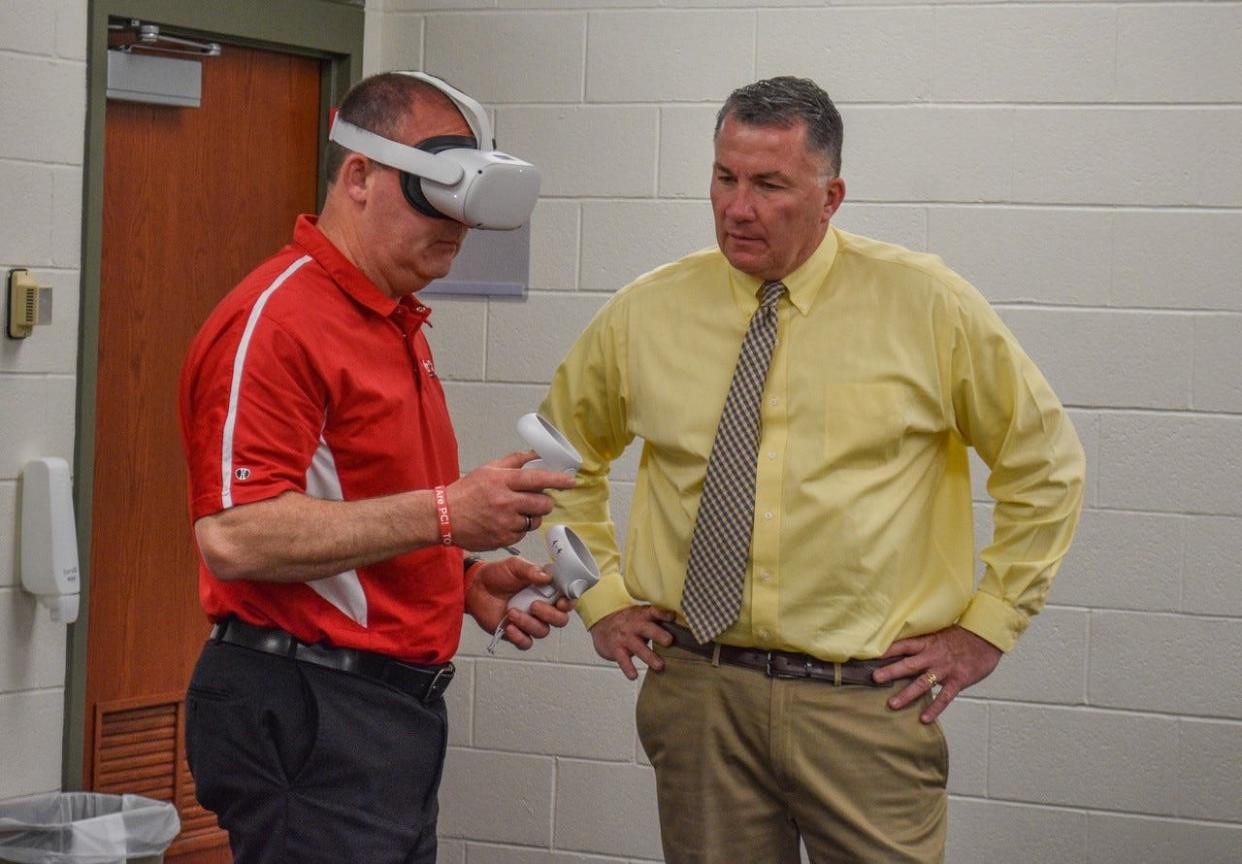Meet Your Neighbor: Virtual reality to help teach algebra in Clyde, Port Clinton

PORT CLINTON — Next school year, Port Clinton High School and Clyde High School algebra students will step into a new era of learning. Thanks to a grant from North Point Educational Service Center, the students will learn algebraic concepts with the help of Oculus Virtual Reality headsets and modules by Prism, an educational technology company.
The headsets place the students in a virtual world that creates a concrete, real-world connection between algebra and daily life.
“This is project-based learning, and I’m hoping it can get kids engaged,” said Kelly Croy, director of Innovation and Instruction for Port Clinton City Schools. “We’re part of a pilot program. We’re one of the first in our area to use this. There’s a waiting list for it, so we were lucky to get it.”
North Point providing virtual equipment to two high schools
Teachers will use the virtual reality curriculum prior to teaching a new concept. The students step into a virtual world and experience practical, virtual hands-on examples of the concept’s use. The idea is to make students better prepared to understand the concept and more receptive to learning it, creating greater engagement in the classroom.
“I call it ‘the hook,’ ” said Chelsea Moyer, director of Learning Technologies for Port Clinton schools. “It gets kids excited and gives them a real-world experience to connect it to.”

Math students often feel there is a detachment between their math lessons and daily life. When they see no purpose in the studies, it can be difficult for them to fully engage in learning. Virtual reality lessons answer the question many teachers hear: Why do we need to learn this?
“Kids want relevance,” said Lonny Rivera, Director of Innovation at North Point. “This gives kids a concrete reason why they need to know the math.”
Want to stay updated on stories like this one, click here to download our free app.
The Prism modules integrate a variety of math concepts into everyday life, including linear functions, quadratics, exponentials and statistics. In a “Pandemic” module, students get a birds’-eye view of a city affected by a viral outbreak. They model the outbreak across a community and use algebraic concepts to calculate the spread of the virus.
“I had the opportunity to try the headsets, and it’s mind-boggling,” said Joe Letterhos, director of Curriculum and Instruction for Clyde-Green Springs schools. “I feel bringing this type of resource is innovative. It addresses new concepts like spatial reasoning in a way that can’t be taught from a book or taught from a board. I feel like this is putting our students in the best situation for success.”
Virtual reality headsets to connect students to actual use in real world
Port Clinton and Clyde-Green Springs staff will undergo training for the equipment this month. On May 10, Port Clinton staff members attended an introductory meeting, and teachers had the opportunity to try the headsets for the first time. Math teacher Rachael Schenko tested a flight simulator module and was impressed.
“It was very realistic,” Schenko said. “I think it will connect algebra to things students will actually use and see in the real world.”
The Oculus Virtual Reality headsets are on loan from North Point for one year, and the North Point grant allows the schools to test the virtual reality curriculum at no cost to the school district. At the end of next school year, the staff will assess the success of the program to determine if it impacted students’ understanding of math concepts and their performance.
“Next year, we’ll find two additional districts. We’re trying to move this around so teachers can see what’s out there,” Rivera said.
Contact correspondent Sheri Trusty at sheritrusty4@gmail.com.
This article originally appeared on Fremont News-Messenger: Meet Your Neighbor: Clyde, Port Clinton students to participate in virtual algebra

